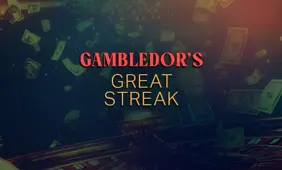R. Paul Wilson On: The Rise of Clip Joint Culture

Gambling, investing, or even just banking online are perfectly normal activities that come with varying degrees of risk. Some dangers are easily predicted, while others can seemingly spring from nowhere. As we often say, knowledge is the best defense against deception, but well-known tricks and traps can evolve or grow around us until we’re neck-deep, treading water in a riptide. This is true for the seemingly mundane costs of gambling, whether online or in real life. What began as the simple cost of entry has morphed into a monster, greedily snapping at every penny in our collective pockets.
The underground term for bars, card rooms, or businesses designed to rip off their clientele is a “clip joint.” I've encountered hundreds over the years, but there's a real distinction between a smart operation and a greedy one that we can learn from. This phenomenon is not unique to gambling; similar issues arise in many pursuits, from fine dining to grocery shopping, as prices creep or leap upwards until customers realize they simply can’t continue being taken for a ride.
Jackpot Dreams Meet Premium Bills
I recently wrote about the astonishing cost of visiting Las Vegas, a city once famous for affordable food, drink, and accommodation that attracted millions of people to risk the rest of their money at the tables or slot machines of land based casinos, where the real profits were made.
That business model has been gone for a long time, and the current version is the exact opposite of the principle that made Vegas so popular: to get people to come and then get them to keep coming back, even after losing. That principle was simple: even if you lost your entire bankroll, on the way back to your free room, after a steak dinner, you didn’t feel burned and genuinely believed that you might have won had your luck (or decisions) been different.
Fair gaming policies achieved this effortlessly because the house only won in the long run, while ordinary people hit jackpots every day. That’s why convincing lucky players to help promote games was such a valuable strategy. However, when those lucky players become fewer and fewer, people will eventually realize that they never seem to win if the house pushes its edge too far and I think this is where Sin City and modern commerce is beginning to find itself.
Prices have increased, and people are beginning to wake up as corporate leaders celebrate as their profits explode. When asked what happens when ordinary players stop turning up, they actually want to discourage the hoi polloi and attract wealthier players. Attract them to what?
Without the buzz and energy of a million players, party-goers, drinkers, diners and good old-fashioned tourists, Las Vegas might become a playground for rich people who might not care about crazy room prices or thousand-dollar plates in million dollar restaurants but just like middle-class families coughing up a c-note for fast food, the rich will soon realize they’re not getting the experience they’re paying for.
Human beings are strange and complex animals with psychological triggers that can be used in a variety of ways. For example, even after being ripped off, receiving something in return—even a subpar product—can be a powerful remedy for the feeling of being scammed. It gives people something tangible to hold on to, and I've seen individuals assign value to complete garbage I convinced them to buy (on TV) just to avoid admitting they were deceived.
When Losing Feels Like Winning
A smart clip joint does this by either trading an experience for (all) our money or ensuring we have enough to get home, perhaps even returning a few bucks in our direction as if we might be the first unlucky customer to lose their shirt. We still got cleaned out, but retain the belief we were simply unlucky and might do better next time.
That “next time” ceases to happen if suckers keep getting taken for a ride in the wrong direction; eventually, they stop coming back. Consider the con artist Jefferson Randolph Smith, better known to history as Soapy Smith, a criminal mastermind who evolved from soap-selling scams (hence his nickname) to becoming the de facto crime lord of Skagway, Alaska until he died, gunshot and bleeding, on Juneau Wharf.
The soap scam was simple: Soapy and his crew would gather a crowd to hear about the remarkable qualities of a new brand of soap that promised to be long-lasting and dirt-destroying while granting the user a pleasant odor sure to attract the opposite sex. The issue was the price, which was higher than usual, but Soapy had a simple and powerful way to sell every bar of that cheap, ordinary soap he had simply re-wrapped in wax paper: he turned it into a gambling game!
For every pitch of his product, Soapy would wrap a large denomination banknote around one of the bars, wrap that in the same wax paper as the others in his bag or box, mix those up, then sell all the bars. Someone in the crowd always whooped and waved their free money, and a larger crowd would quickly gather to try again!
The scam was simple: Soapy would palm away the bill as he wrapped the paper, switch the wrapped bar before mixing with the others, or—as I did when recreating the scam for the Real Hustle—toss it into a concealed compartment where it would remain as the others were sold. Meanwhile, the lucky “winner” was part of Soapy’s crew who simply waved another bill, creating the illusion the game could be won.
Soapy’s scams evolved from this street swindle but followed the same principle of giving people something while charging more and keeping more than he would had the business been honest and had he not started taking more than people could afford, he might be remembered as Alaska’s greatest businessman instead of its most famous hustler.
Scammers take what they can based on who they are taking; if they have one shot at a mark, they will go for every penny, but if their scam is based on return business, it’s essential to keep them coming back for more. Many great con games are based on rebuilding a hope of winning back whatever might be lost in a game or transaction and I know several scams that can beat the same mark multiple times or keep them on the hook for years.
Even Soapy Smith’s victims had a bar of soap to go home with. Las Vegas once depended on junkets where planes and coaches would fill a casino with fresh fish to enjoy bright lights, big plates, and beautiful dancers between gambling hours where some would win and most would lose but go home thinking next time would be their time (and sometimes it would be). Now every club, restaurant, bar, and store want a piece of your action, and the casinos have pushed their games off a triple-zero six-to-five cliff so that even the most enthusiastic gambler and Vegas lover has to balk at how much they’re losing compared to the past AND how much it’s costing them to come and lose!
Luck Costs Extra
Gaming revenue in Las Vegas has increased significantly as more people visit the city. However, this increase is also due to the odds becoming increasingly in favor of the house. The rising costs in Vegas are evident not just at the gaming tables but also in the cost of accommodations. In 2010, the average hotel room rate on the ever-evolving Las Vegas Strip was $94. By 2015, this rate had increased to $120, and as of 2024, the average room rate is $210. These prices do not include resort fees, which can be as much as $50 per night!
We’re seeing this in all walks of life; how many once-free or one-time payment apps on your phone now demand a subscription, and how many streaming platforms do you have that offer weaker selections for more money? And how much more are you spending on gas, travel, clothes, food, rent, mortgage? When everyone wants their piece of your action, eventually something has to give, and what we’re seeing in gaming destinations like Vegas is just a more intense version of what’s happening to everyone whether they get on a plane to gamble or do so from their laptop at home. This might be normal, it might be universal, but it is still unfair.
Corporate profits are through the roof, and you can look to your politicians to blame for the untethering of traditional safeguards like antitrust laws as businesses have stopped competing for our money and started colluding to take an unfair share of much more than we used to spend. People are beginning to notice; the question is, what will they do about it?





Review this Blog
Leave a Comment
User Comments
comments for R. Paul Wilson On: The Rise of Clip Joint Culture